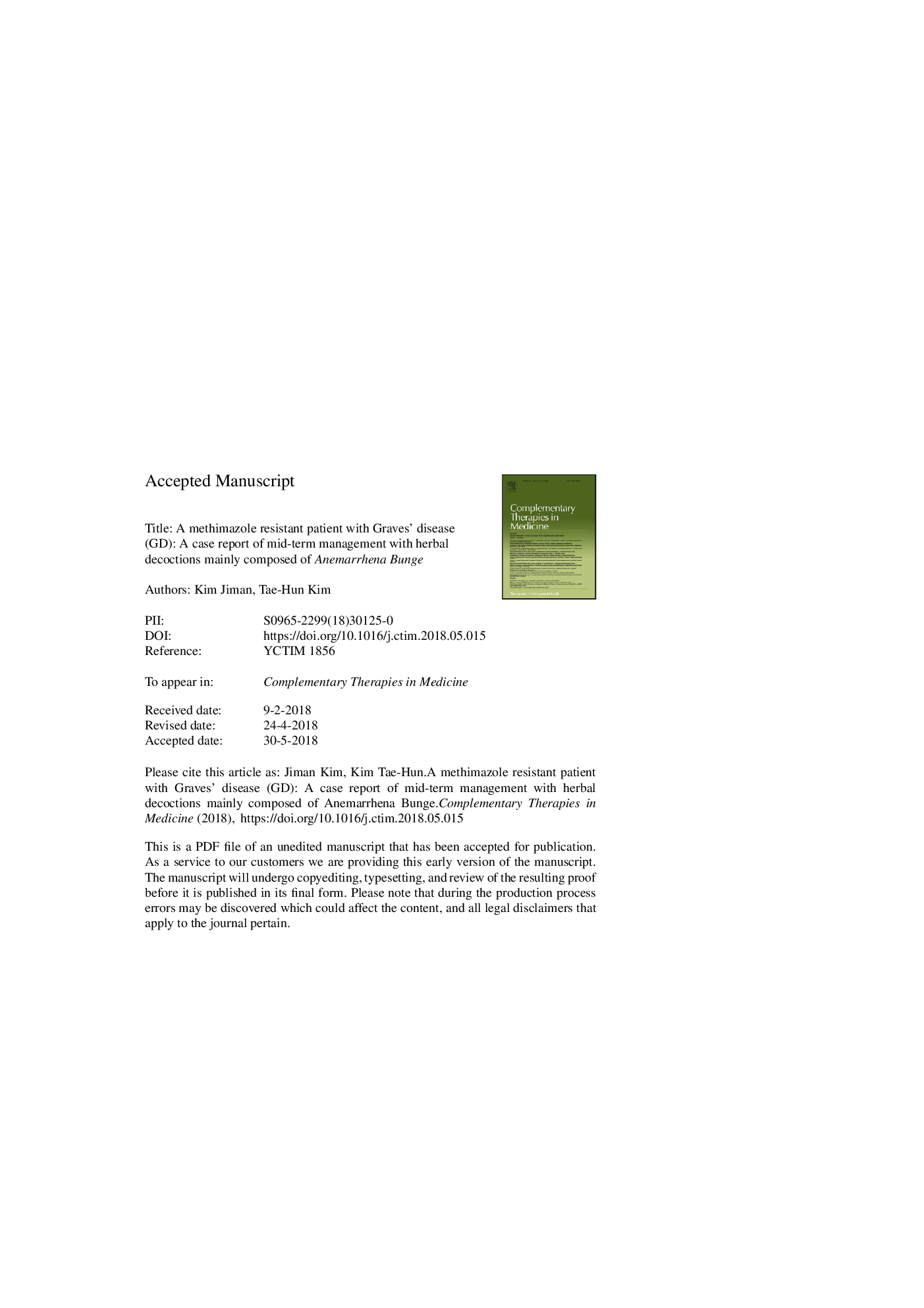| Article ID | Journal | Published Year | Pages | File Type |
|---|---|---|---|---|
| 8563347 | Complementary Therapies in Medicine | 2018 | 17 Pages |
Abstract
Graves' disease (GD) is the most common cause of hyperthyroidism. Anti-thyroid drugs, including methimazole, are the most commonly selected treatment option for this condition. But for decades, no additional drug option has been added. Anemarrhena Bunge has been used in many herbal decoctions for patients who had hyperthyroidism-like symptoms, such as sweating, heat intolerance, and anxiety. In this case study, a patient with GD who had once achieved therapeutic goals with methimazole but then re-developed hyperthyroidism was treated with only herbal decoctions, and achieved euthyroidism, normalization of T3, T4 levels for 13 months and maintenance of thyroid stimulating hormone (TSH) levels for 8 months and TSH binding inhibitory immunoglobulins (TBII)-negative status for 13 months (TSH and TBII level before treatment: 0.01â¯Î¼IU/mL, 10.94 IU/L; TSH level normalization after 14 months from the initiation of the treatment: 0.75â¯Î¼IU/mL, TBII level normalization after 9 months from the initiation of the treatment: 0.8 IU/L). The patient did not report any adverse effects related to this treatment. A herbal decoction with Anemarrhena Bunge might be effective in patients who are resistant to methimazole treatments, a finding which needs further investigation in future.
Related Topics
Health Sciences
Medicine and Dentistry
Complementary and Alternative Medicine
Authors
Jiman Kim, Tae-Hun Kim,
